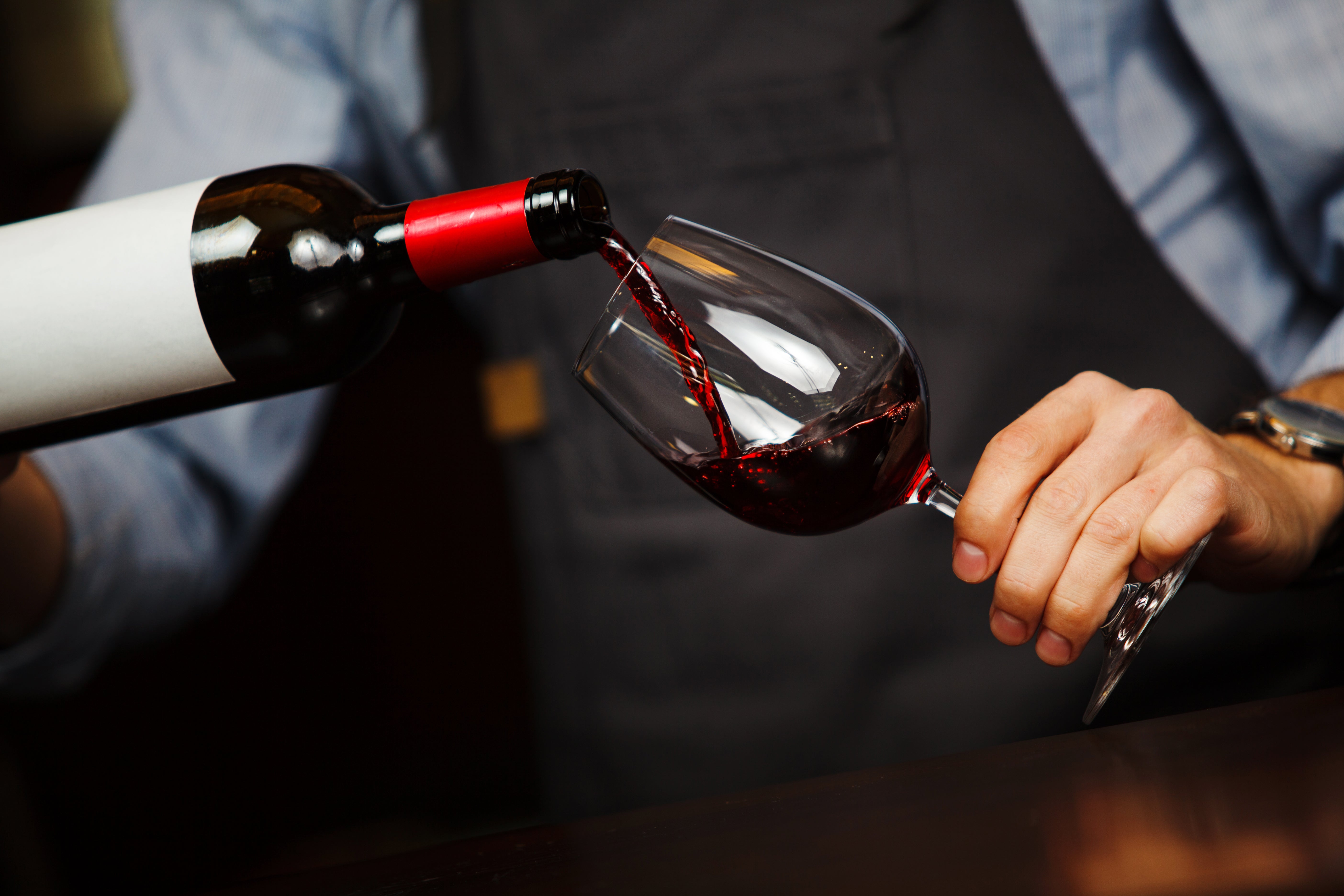Does any wine deserve to sell for thousands of pounds?
Christie’s auction house recently sold seven rare bottles for a staggering £35,000, writes wine expert Rosamund Hall. But is eye-wateringly expensive tipple ever really worth it?


But what would you do if you had a spare £35,000? Clear your credit card debts? Pay off your mortgage? Invest in a pension? Or you could, as was the case with one individual last month, buy seven bottles of wine.
This staggering purchase was made as part of the sale at Christie’s auction house of bottles from Le Gavroche’s wine cellar – a treasure trove of “who’s who” wines from the recently closed London restaurant owned by Michel Roux Jr. Overall, the sale raised a staggering £1.9m.
The wine that sold for the eye-watering price of £35k was Richebourg 1993 from Domaine de la Romanée-Conti, a pinot noir from Burgundy, France. DRC, as it’s familiarly known, is a producer that regularly tops the list of the most expensive wines in the world.
It’s not surprising if these figures make you feel uncomfortable. Surely you’re left wondering if a wine is ever worth such a price. Perhaps – I’ve certainly shelled out on special occasions myself.
In 2014, I went out for dinner with a wine-loving friend, and we bought a bottle that cost us £145. It was a 1968 Conterno Barolo – a nebbiolo from the Piedmont region of northwest Italy – and it was the most money I’d ever spent on a bottle of wine.
Was it worth it? Definitely – pound for pound, the return on the investment of the experience was a good one. My friend now lives overseas, so I see him infrequently, and I treasure the memory of sharing the bottle with him. Also, it was a steal for what it was, even if it did blow my whole “going out” budget for the month.
I wouldn’t regularly buy wines at that price though, obviously. The idea of prohibitively expensive bottles goes against my entire ethos regarding wine, ie that everybody should be able to enjoy it.
But why does a bottle of wine cost what it does? In the UK, a huge chunk is immediately taken up with tax – alcohol duty and VAT. And then there’s the cost of transportation, bottling, marketing – and that’s before you’ve even taken into account the wine itself. Brands are important, and wine regions and grape varieties are brands in themselves.
If you want a classic sauvignon blanc, you might buy a sancerre, a white wine from the village of the same name in the Loire Valley, which is internationally famous for its sauvignon blanc. But on the other side of the banks of the Loire, you’ll find the village of Menetou-Salon, and you can buy nigh on the same wine for less money. Menetou-Salon, whilst famous in wine circles, just hasn’t got the brand reputation of Sancerre, and therefore can’t charge such a premium.
Then there are the other costs. Land value is a huge factor: “grand cru” sites in Burgundy, Champagne, or anywhere in the UK for that matter, will cost a lot more than in Southern France or much of Spain, and that will be reflected in the price.
As will the way that the vineyards are managed – do they work by hand or are they mechanised? Is the finished wine stored in expensive oak barrels, or in large stainless-steel tanks, with oak essence and wood chips used to enhance flavours? And if a winemaker has a bad vintage through climatic impact, then the cost will rise again.
These elements all contribute to the final price, so much so that the vast majority of wine we consume is produced on an industrial scale to keep costs as low as possible.
But there is a cap to how much a bottle of wine can actually cost to produce, at which point factors such as marketing, rarity and fashion come into play. I used to recommend the easterly French region of the Jura as a location for under-the-radar, elegant and good-value wines – the region has now rocketed in popularity, and therefore in price. Is the wine suddenly five times better now that it’s five times more expensive? Of course not. But status plays such a big role, it hardly matters.
But then there are the otherwordly wines – the sort that you definitely don’t see every day, and perhaps are priceless. By pure chance, I found myself in the very fortunate position of being present when a bottle of 1945 Lafite was drunk as part of a 70th birthday celebration.
It is one of the most memorable wines I’ve ever drunk – firstly, it tasted good. I realise that’s not an expansive tasting note, but it’s often the most useful takeaway from drinking any wine. Secondly, it was a deeply emotional experience. I felt like I was reaching back in time and being intimately connected with people I’d never met. This was a wine that was made just months after the end of the Second World War, and here I was, standing in a suburban living room one chilly February evening by the fire, enjoying the fruits of their labour. It was transcendental.
We’re not all going to drink Lafite every day. So what’s my advice? Well, when it comes to pricing, a good rule of thumb is that a £100 bottle is rarely five times better than a £20 wine, but a £20 bottle is highly likely to be four times better than a £5 wine.
But if you have the opportunity to savour something more expensive (if someone else is paying), then take it – you’ll rarely regret it. Although perhaps avoid ordering Domaine de la Romanee-Conti if you see it on a wine list – I don’t think any wine is worth that sort of money.
Rosamund Hall (DipWSET) is a freelance writer and wine consultant
Join our commenting forum
Join thought-provoking conversations, follow other Independent readers and see their replies
Comments
Bookmark popover
Removed from bookmarks